Women and Girls in Science: Leading Change Through STEM
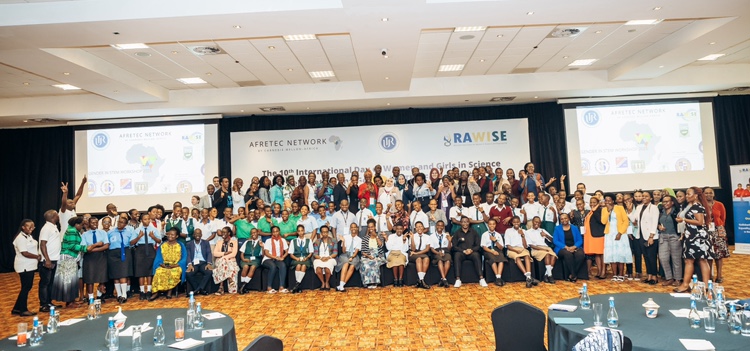
At the Kigali Serena Hotel on February 11, 2025, the energy was unmistakable. Young girls, women scientists, and educators gathered to celebrate the 10th International Day of Women and Girls in Science, an event that was more than just a discussion—it was a movement.
Organized by the Rwanda Association for Women in Science and Engineering (RAWISE) and supported by AFRETEC Network, Carnegie Mellon University Africa, the American University in Cairo, UNESCO, and other institutions, the event focused on breaking barriers and inspiring young women to pursue careers in science, technology, engineering, and mathematics (STEM).
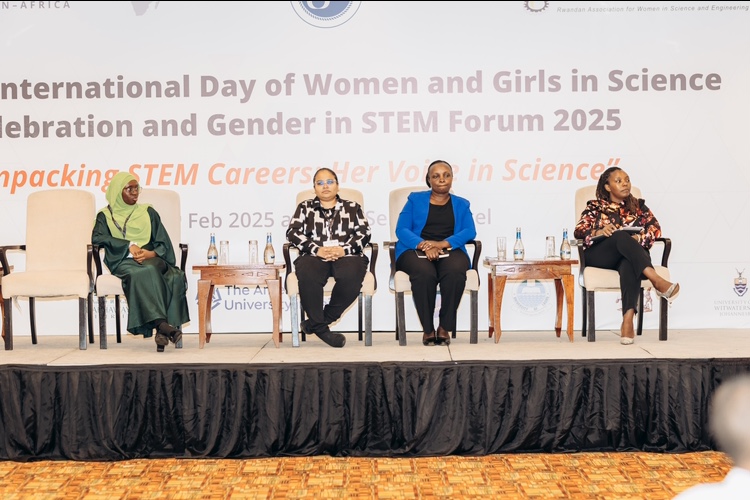
One of the biggest challenges discussed was the deep-seated stereotype that women are less capable in science. Many speakers shared their personal experiences of overcoming obstacles. Dr. Bancy Waweru and Fatima Makda encouraged students to stay adaptable and embrace lifelong learning, while Zaynab Awofeso reminded them: “Life is not a straight line. There will be obstacles, but you must keep moving forward.”
That message of perseverance was echoed by Cyiza Beatrice, Permanent Secretary in the Ministry of Environment, who encouraged young girls to push beyond societal expectations: “If you work hard and succeed, you can show others that it is possible.”
Beyond personal struggles, the event highlighted structural challenges women face in STEM. Ruth Mukamutara, a CMU-Africa graduate, pointed out that women in science often face unfair scrutiny, with their mistakes being judged more harshly than those of their male counterparts.
For young girls like Ms. Sugira Muhizi Shekinah, a sixth-year student at FAWE Girls’ School, the lack of mentorship remains a major barrier: “There is a mentorship gap from experienced women in science,” she noted, adding that limited resources and tools for hands-on learning in schools make it even harder for girls to thrive in STEM.
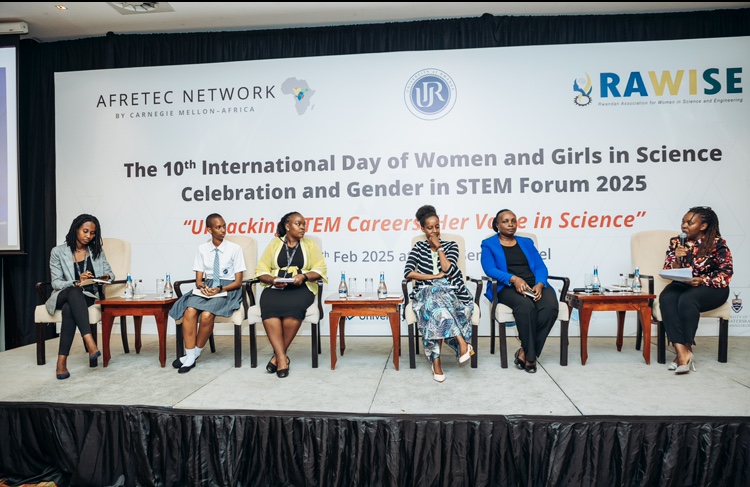
The solution? More women in STEM stepping forward as mentors, sharing their journeys, and supporting the next generation.
Women in STEM: Innovating for a Sustainable Future
While gender equality was a central theme, another major issue emerged—climate change. Women in STEM are not only fighting for representation but also leading innovative solutions to global challenges.
Dr. Cyulinyana Marie Chantal, President of RAWISE, spoke passionately about the critical role of women in sustainability:
“When we talk about climate change, women are at the forefront, especially in households. If women are educated about climate issues—like firewood use and waste management—they can drive real change, starting in their own communities.”
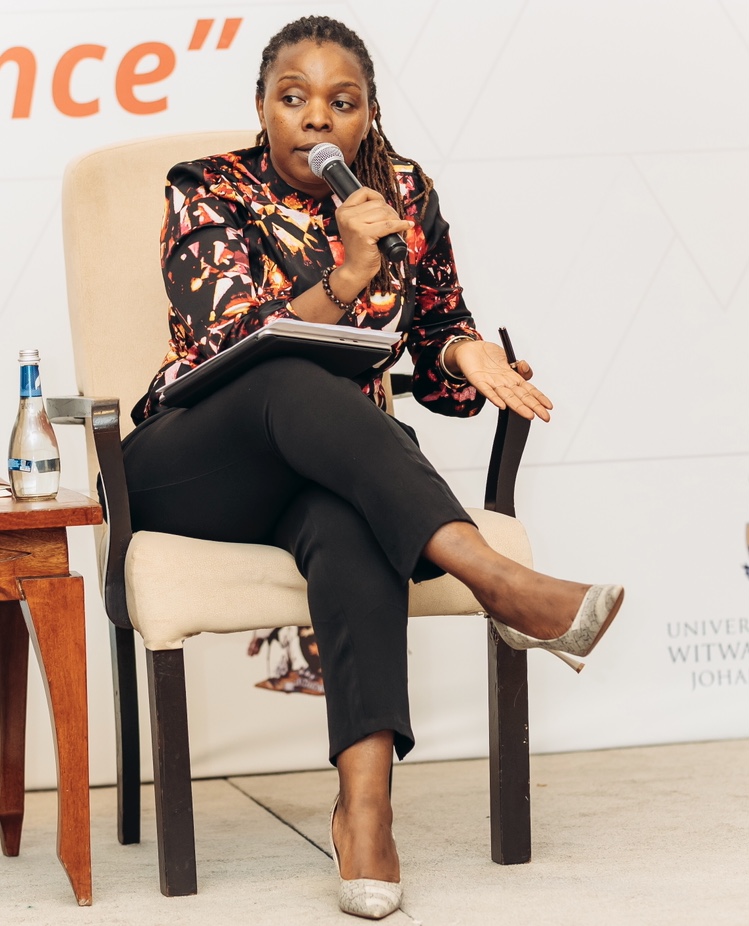
She also proposed an idea to inspire more young girls: “What if we documented the success stories of women in STEM? A book showcasing their journeys could motivate others to follow in their footsteps. As today’s theme says, ‘hear her voice.’”
Young voices are already making a difference. Students from 10 high schools under UNESCO’s Global Citizenship Education Program presented projects aimed at solving real-world challenges.
Ms. Sugira Muhizi Shekinah and her team developed a robotics project designed to reduce greenhouse gas emissions by converting harmful car emissions into reusable fuel. “We are working on a project that will not only fight climate change but also improve economic sustainability,” she explained.
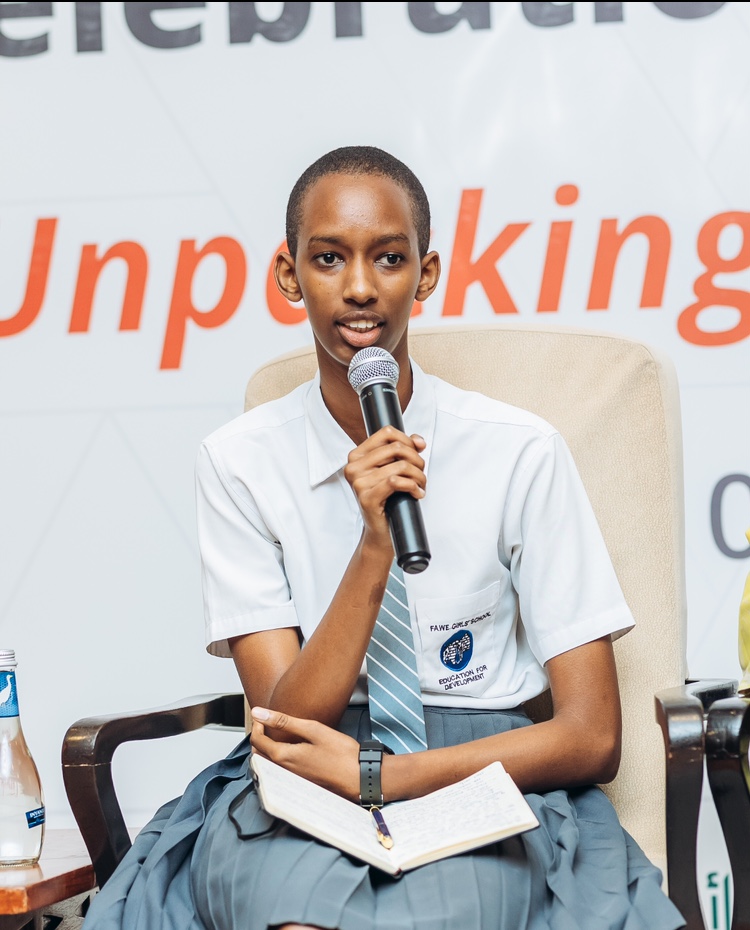
At the university level, women are tackling climate issues from multiple angles. Delphine Nyaboke, a CMU-Africa student, emphasized the growing role of women in climate science “We have climate scientists in our gender STEM today, and we are making an impact.”
Meanwhile, Dr. Solange Uwingabire, a researcher in forest science, is working on a biochar fertilizer project to reduce dependency on synthetic fertilizers, which contribute to environmental degradation. She believes women can play a major role in promoting sustainable farming: “Organic fertilizers are crucial for climate resilience, and women can lead the charge in educating communities on their benefits.”
But these innovations need funding and institutional support to reach their full potential
Pierre Bakunzibake, AFRETEC Network Coordinator, stressed the need for better gender inclusion at the university level: “We need a gender mainstreaming office at the University of Rwanda, with specific indicators to monitor women’s progress in STEM. Gender policies exist, but they are not yet fully implemented.”
On supporting student-led climate projects, he had a clear message: “AFRETEC is open to supporting these projects. We encourage students to submit their ideas for potential sponsorship and connect them with funding organizations.”
UNESCO is also stepping up its efforts. Dominique Mvunabandi, Director of Sciences, Technology & Innovations Unit at Rwanda National Commission for UNESCO (CNRU), announced plans to expand the Global Citizenship Education Program from 10 pilot schools to 100 across Rwanda:
“These projects are in their early stages, but we want to ensure that students can continue working on them through internships and research opportunities. Some may even turn their ideas into businesses in the future.”
The event closed with a powerful message from Cyiza Beatrice, urging young girls to believe in their potential: “Science is not something impossible. It’s for everyone. Study hard, excel, and show younger girls that it is possible.”
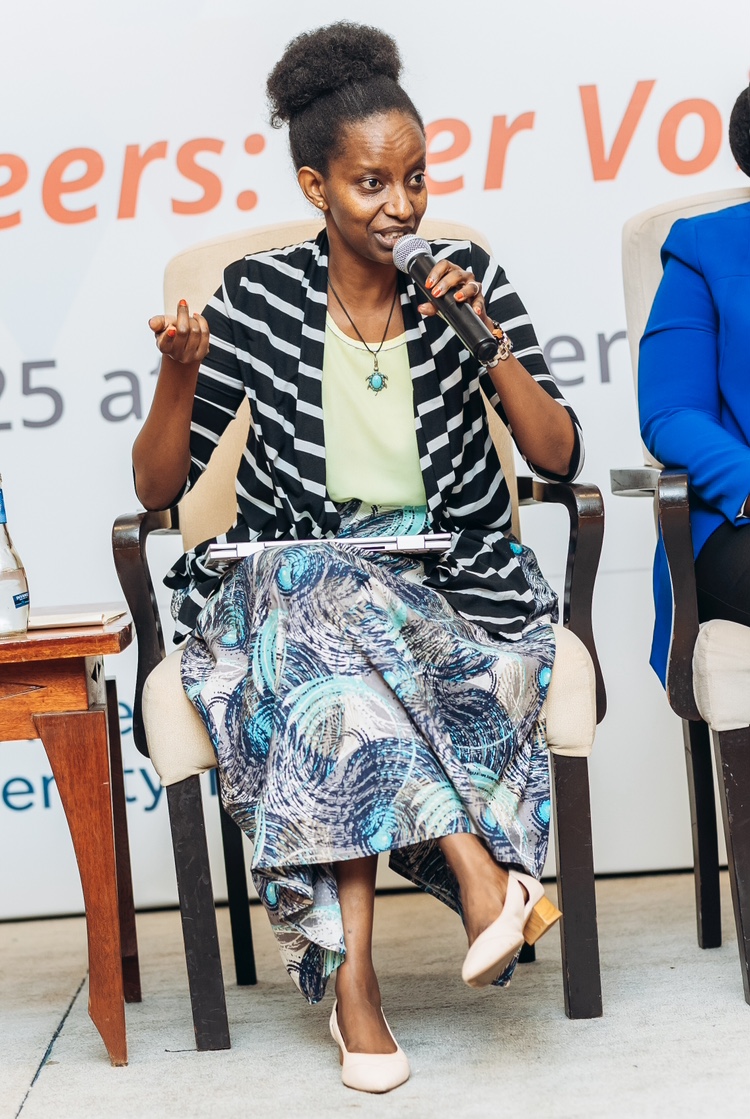
As Rwanda continues to invest in STEM education, the event reinforced the need for mentorship, funding, and awareness campaigns to help more women break barriers, innovate, and lead solutions for a sustainable world.
For other pictures of the event, you can click here
Trending Now
Hot Topics
Related Articles
Leaders Call for Stronger Monitoring to Turn Ecosystem Restoration Commitments into Results
Nairobi, Kenya — 27 January 2026 Country and regional leaders, alongside technical...
Worm Tea: A Natural Path to Farming Without Harmful Chemicals
For much of his early farming life, Isaac Mubashankwaya believed chemical fertilizers...
Enroll Now Before 31 December 2025: International German Language Exams Launch in Rwanda
Rwanda will host the European Consortium for the Certificate of Attainment in...
Rwanda Validates Environment and Climate Change Mainstreaming Strategy 2024–2029
This Tuesday, 23 December 2025, the Rwanda Environment Management Authority (REMA), in...


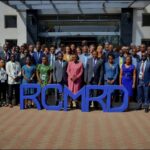
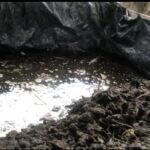

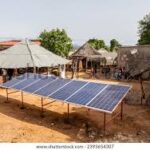
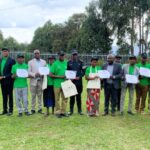


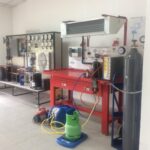
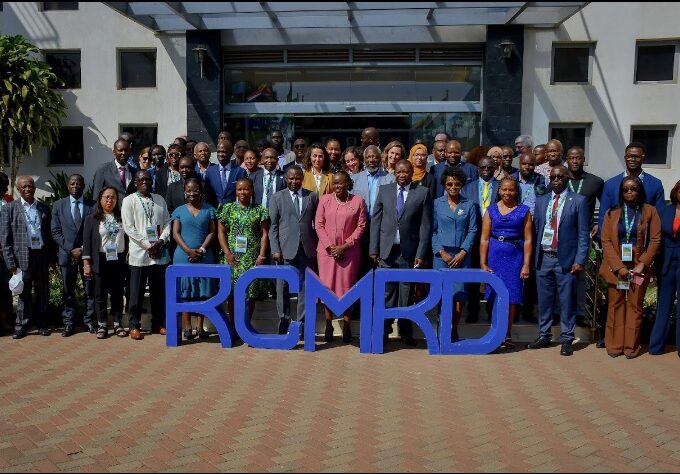
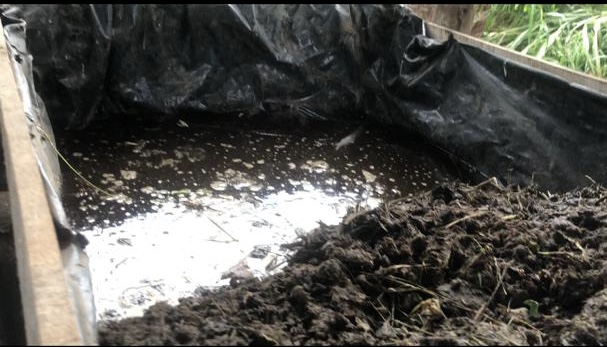
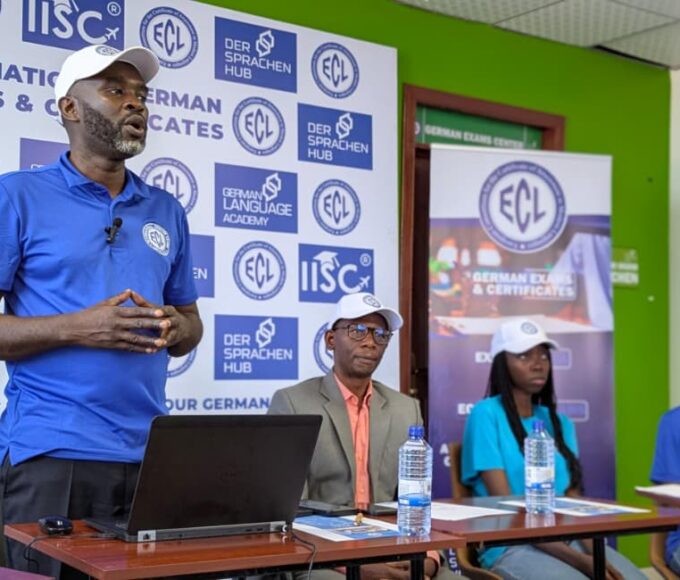
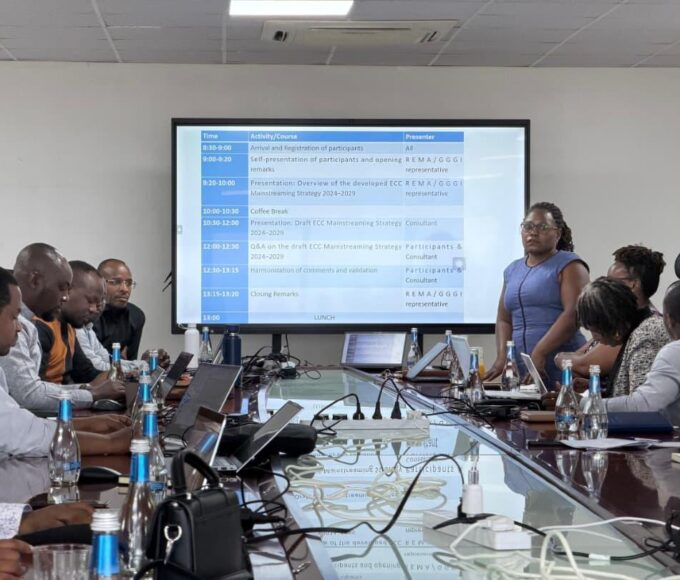
Leave a comment